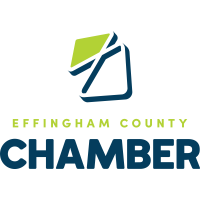According to Pinnacle Franchise Development, there are more than 775,000 franchise establishments in the United States. That figure is only expected to increase in the coming years. So, what's driving all this growth? Many entrepreneurs see franchising as a way to get into business with less risk than starting a business from scratch. And while there's no doubt that franchising has its benefits, it's important to understand both the positive and negative aspects of this type of business ownership before taking the plunge. Consider the below information from the Effingham County Chamber.
Upsides of Franchising
-
Your Risk Is Lower: When you open a franchise, you are essentially partnering with an already established and successful company. This means that there is less risk involved than if you were to start your own business from scratch. With a franchise, you will have access to the company's existing customer base as well as its marketing and branding materials. In addition, you will receive ongoing support from the franchisor in terms of training and operational assistance.
-
The Brand Has Been Built: When you open a franchise, you are aligning yourself with a proven brand. And as we've said, this provides instant recognition and can give you a leg up on the competition. For example, customers may already be familiar with the products or services you offer, which can make it easier to attract their business. With the right franchise, you can tap into an existing customer base and enjoy the advantages of being associated with a trusted name.
Downsides to Franchising
-
There Isn't a Lot of Autonomy: When you open a franchise, you are in business for yourself, but not by yourself. One of the benefits of franchising is that you have the support of the franchisor, who provides you with proven systems and procedures to follow. This can be a great help when starting a new business, as it takes some of the guesswork out of the equation. However, it also means that there isn't as much room for autonomy as there would be if you were starting your own unique business. You'll need to follow the franchisor's guidelines closely in order to be successful. If you're looking for an opportunity to be your own boss and build something from the ground up, a franchise may not be the right fit for you.
-
It Costs a Lot to Open a Franchise: It's also important to be aware of the startup costs involved in opening a franchise. In many cases, you'll need to pay a franchisor fee in order to use the company's name and branding. You may also need to purchase equipment and inventory and build or lease commercial space. If you're not careful, the upfront costs of opening a franchise can be very high. However, there are ways to reduce these costs. Many franchisors offer financing options, and some will even help you find low-cost locations.
LLCs: A Good Choice for Franchise Owners
An LLC is a business structure that can offer franchise owners liability protection and tax advantages. When you form an LLC in Illinois, your personal assets are shielded from creditors in the event that your business is sued. This means that if your franchise is ever faced with a lawsuit, your personal savings, home, and car are all off-limits to creditors. Additionally, LLCs can provide tax benefits by allowing you to deduct certain business expenses from your taxes. This can help you keep more of your hard-earned money in your pocket.
Writing a Business Plan
Before opening any type of business, franchise or otherwise, it's important to write a business plan. This document will outline your goals and how you plan to achieve them. It will also help you gain a better understanding of your target market and what kind of competition you'll be up against. A well-prepared business plan can mean the difference between success and failure, so it's definitely worth taking the time to do it right.
As with any type of business ownership, there are pros and cons. However, many entrepreneurs feel the benefits outweigh the negatives when it comes to franchise ownership. And when managed correctly, franchises can be lucrative businesses with minimal risk. If you're thinking about opening a franchise, be sure to do your research beforehand and consult with an experienced attorney or accountant to get started on the right foot.
The Effingham County Chamber is your ally in building your business in our community (and beyond). Join us today!

